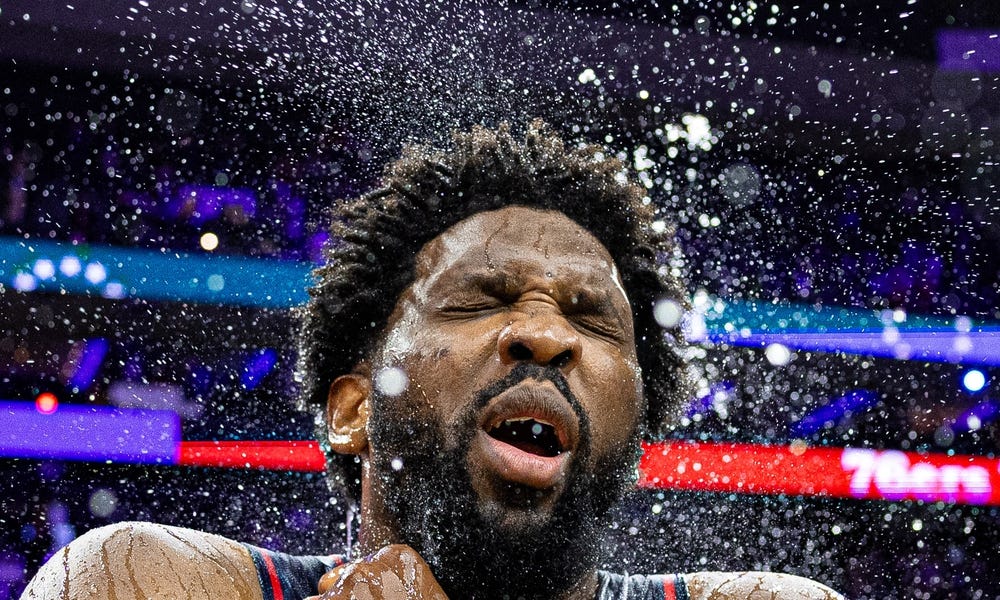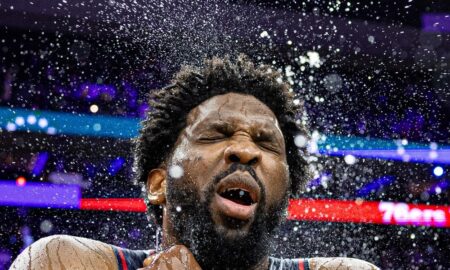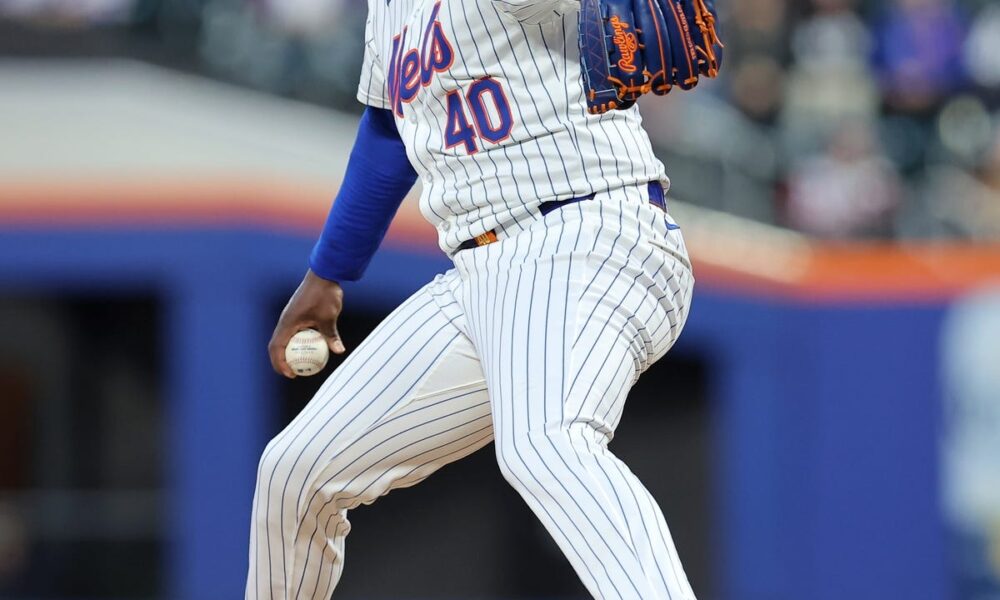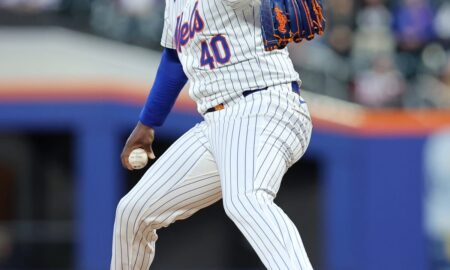Featured Articles
-

 28MLB Game Previews, Picks & Predictions
28MLB Game Previews, Picks & PredictionsNationals vs Dodgers Prediction, Pick, Preview & Betting Odds – MLB 4/17/24
-

 37NBA Game Previews, Picks & Predictions
37NBA Game Previews, Picks & PredictionsHawks vs Bulls Prediction, Pick, Preview & Betting Odds for 4/17/24
-
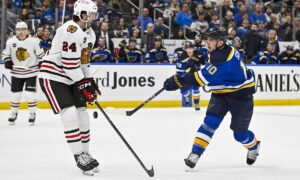
 30NHL Game Previews, Picks & Predictions
30NHL Game Previews, Picks & PredictionsBlues vs Stars Prediction, Pick, Preview & Betting Odds for 4/17/24
What’s Hot
-

 26MLB Game Previews, Picks & Predictions
26MLB Game Previews, Picks & PredictionsCubs vs Diamondbacks Prediction, Pick, Preview & Betting Odds – MLB 4/17/24
Check out our free Cubs vs Diamondbacks pick and preview for this MLB matchup...
-

 32MLB Game Previews, Picks & Predictions
32MLB Game Previews, Picks & PredictionsYankees vs Blue Jays Prediction, Pick, Preview & Betting Odds – MLB 4/17/24
Check out our free Yankees vs Blue Jays pick and preview for this MLB...
-

 23NHL Game Previews, Picks & Predictions
23NHL Game Previews, Picks & PredictionsMaple Leafs vs Lightning Prediction, Pick, Preview & Betting Odds for 4/17/24
Check out our free Maple Leafs vs Lightning prediction for this NHL matchup in...
Latest Knup Sports Show
Latest Posts at KnupSports.com
-

 7EPL Game Previews, Picks & Predictions
7EPL Game Previews, Picks & PredictionsManchester City vs Brighton & Hove Albion Prediction, Pick, Preview & Betting Odds – Premier League 4/25/24
Check out our free Manchester City vs Brighton & Hove Albion pick and preview for this Premier League match in Brighton &...
-

 14EPL Game Previews, Picks & Predictions
14EPL Game Previews, Picks & PredictionsLiverpool vs Fulham Prediction, Pick, Preview & Betting Odds – Premier League 4/21/24
Check out our free Liverpool vs Fulham pick and preview for this Premier League match in London. See who we like to...
-

 13EPL Game Previews, Picks & Predictions
13EPL Game Previews, Picks & PredictionsWest Ham United vs Crystal Palace Prediction, Pick, Preview & Betting Odds – Premier League 4/21/24
Check out our free West Ham United vs Crystal Palace pick and preview for this Premier League match in London. See who...
-

 11EPL Game Previews, Picks & Predictions
11EPL Game Previews, Picks & PredictionsAFC Bournemouth vs Aston Villa Prediction, Pick, Preview & Betting Odds – Premier League 4/21/24
Check out our free AFC Bournemouth vs Aston Villa pick and preview for this Premier League match in Birmingham. See who we...
-

 13EPL Game Previews, Picks & Predictions
13EPL Game Previews, Picks & PredictionsNottingham Forest vs Everton Prediction, Pick, Preview & Betting Odds – Premier League 4/21/24
Check out our free Nottingham Forest vs Everton pick and preview for this Premier League match in Liverpool. See who we like...
-

 13EPL Game Previews, Picks & Predictions
13EPL Game Previews, Picks & PredictionsArsenal vs Wolverhampton Wanderers Prediction, Pick, Preview & Betting Odds – Premier League 4/20/24
Check out our free Arsenal vs Wolverhampton Wanderers pick and preview for this Premier League match in Wolverhampton. See who we like...
-

 10EPL Game Previews, Picks & Predictions
10EPL Game Previews, Picks & PredictionsBurnley vs Sheffield United Prediction, Pick, Preview & Betting Odds – Premier League 4/20/24
Check out our free Burnley vs Sheffield United pick and preview for this Premier League match in Sheffield, Yorkshire. See who we...
-

 7EPL Game Previews, Picks & Predictions
7EPL Game Previews, Picks & PredictionsBrentford vs Luton Town Prediction, Pick, Preview & Betting Odds – Premier League 4/20/24
Check out our free Brentford vs Luton Town pick and preview for this Premier League match in Luton. See who we like...
-

 13MLS Game Previews, Picks & Predictions
13MLS Game Previews, Picks & PredictionsSan Jose Earthquakes vs Los Angeles Galaxy Prediction, Pick, Preview & Betting Odds – MLS 4/22/24
Check out our free San Jose Earthquakes vs Los Angeles Galaxy pick and preview for this MLS match in Carson, CA. See...
-

 11MLS Game Previews, Picks & Predictions
11MLS Game Previews, Picks & PredictionsMinnesota United vs Charlotte Prediction, Pick, Preview & Betting Odds – MLS 4/21/24
Check out our free Minnesota United vs Charlotte pick and preview for this MLS match in Charlotte, NC. See who we like...
-

 9MLS Game Previews, Picks & Predictions
9MLS Game Previews, Picks & PredictionsVancouver Whitecaps vs Seattle Sounders Prediction, Pick, Preview & Betting Odds – MLS 4/21/24
Check out our free Vancouver Whitecaps vs Seattle Sounders pick and preview for this MLS match in Seattle, WA. See who we...
-

 8MLS Game Previews, Picks & Predictions
8MLS Game Previews, Picks & PredictionsNew York Red Bulls vs Los Angeles Prediction, Pick, Preview & Betting Odds – MLS 4/21/24
Check out our free New York Red Bulls vs Los Angeles pick and preview for this MLS match in Los Angeles, CA....
-

 8MLS Game Previews, Picks & Predictions
8MLS Game Previews, Picks & PredictionsSt. Louis City SC vs Sporting Kansas City Prediction, Pick, Preview & Betting Odds – MLS 4/21/24
Check out our free St. Louis City SC vs Sporting Kansas City pick and preview for this MLS match in Kansas City,...
-

 8MLS Game Previews, Picks & Predictions
8MLS Game Previews, Picks & PredictionsReal Salt Lake vs Chicago Fire Prediction, Pick, Preview & Betting Odds – MLS 4/21/24
Check out our free Real Salt Lake vs Chicago Fire pick and preview for this MLS match in Chicago, IL. See who...
-
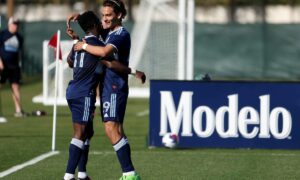
 11MLS Game Previews, Picks & Predictions
11MLS Game Previews, Picks & PredictionsNew England Revolution vs Toronto Prediction, Pick, Preview & Betting Odds – MLS 4/20/24
Check out our free New England Revolution vs Toronto pick and preview for this MLS match in Toronto, ON. See who we...
-
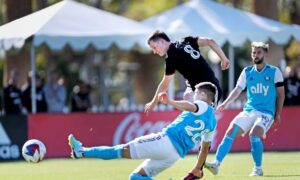
 13MLS Game Previews, Picks & Predictions
13MLS Game Previews, Picks & PredictionsD.C. United SC vs New York City Prediction, Pick, Preview & Betting Odds – MLS 4/20/24
Check out our free D.C. United SC vs New York City pick and preview for this MLS match in New York, NY....
-
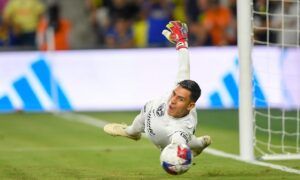
 10MLS Game Previews, Picks & Predictions
10MLS Game Previews, Picks & PredictionsNashville SC vs Inter Miami CF Prediction, Pick, Preview & Betting Odds – MLS 4/20/24
Check out our free Nashville SC vs Inter Miami CF pick and preview for this MLS match in Fort Lauderdale, FL. See...
-

 14MLS Game Previews, Picks & Predictions
14MLS Game Previews, Picks & PredictionsPortland Timbers vs Columbus Crew Prediction, Pick, Preview & Betting Odds – MLS 4/20/24
Check out our free Portland Timbers vs Columbus Crew pick and preview for this MLS match in Columbus, OH. See who we...
-

 14MLS Game Previews, Picks & Predictions
14MLS Game Previews, Picks & PredictionsOrlando City SC vs CF Montréal Prediction, Pick, Preview & Betting Odds – MLS 4/20/24
Check out our free Orlando City SC vs CF Montréal pick and preview for this MLS match in Montréal, QC. See who...
-

 12MLS Game Previews, Picks & Predictions
12MLS Game Previews, Picks & PredictionsFC Cincinnati vs Atlanta United Prediction, Pick, Preview & Betting Odds – MLS 4/20/24
Check out our free FC Cincinnati vs Atlanta United pick and preview for this MLS match in Atlanta, GA. See who we...

